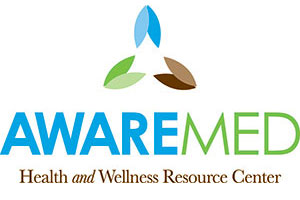Gluten Sensitivity Treatment in Bristol, VA
What Is a Gluten Sensitivity?

Gluten is a protein that is found in many bread products and other types of grains. Gluten provides the elasticity found in dough and is frequently added to foods as a thickener.
Non-celiac gluten sensitivity, known simply as a gluten sensitivity or gluten intolerance, is a condition in which individuals do not tolerate gluten properly, leading to digestive disturbances and other symptoms frequently experience by those who suffer from celiac disease .
If you experience discomfort after consuming gluten-containing foods, it is important to pinpoint the cause of your discomfort. A healthcare provider in Bristol can provide food allergy and sensitivity testing and, if necessary, provide gluten sensitivity treatment. To get started, call (423) 482-8711 or contact AWAREmed Health and Wellness Resource Center online.
Gluten Sensitivity Symptoms
It is important to understand that gluten sensitivity is not the same thing as celiac disease. Celiac disease refers to an autoimmune condition where the intestines have a strong, harmful reaction whenever gluten is ingested.
Gluten sensitivity is instead more similar to a traditional wheat allergy. Like most allergies, there are many different levels of gluten intolerance. People with a severe gluten sensitivity will have many symptoms, while a person with a minor sensitivity will have few.
Some of the most common gluten intolerance symptoms include:
- Diarrhea
- Upset stomach
- Swelling
- Cramps
- Vomiting
If you have a gluten intolerance, you may also experience symptoms outside of the gastrointestinal tract including headaches, fatigue, joint pain, diminished mood and skin issues (eczema, rosacea, and even skin rashes).
Those with severe gluten sensitivity may also suffer from anaphylaxis. This is the medical term for an extreme reaction that can cause throat tightness, chest pain, dizziness and even an accelerated heartbeat.
Gluten Sensitivity Causes
Like with all food sensitivities and allergies, gluten intolerance has no one cause. However, certain factors can put a person at risk for contracting the issue, including:
- Age
- Family history
- Obesity
- Grass pollen allergy
- Hormonal imbalance
- Gut flora (healthy bacteria)
- Poor immune health
Gluten Sensitivity Testing & Treatment
All treatment plans begin with gluten sensitivity testing. This can be performed with a blood test or several other methods. Your healthcare practitioner may also recommend an elimination diet in which gluten is removed from your diet for 1-3 months and then added back in to check if symptoms reemerge.
There is no cure for gluten intolerance and gluten sensitivity. The most popular form of treatment for gluten sensitivity is a gluten-free diet. In this particular diet, gluten (wheat, barley and rye products) is avoided entirely in order to avoid symptoms.
Some common foods that contain gluten which will need to be eliminated from the diet include:
- Bread
- Cake
- Beer
- Cereal
- Crackers
- Candy
- Soy sauce
- Processed meats
In addition to diet changes, your healthcare practitioner may recommend other strategies to strengthen your immune system and correct any health concerns which have manifested due to your gluten sensitivity, particularly leaky gut syndrome .
The only way to determine if you have a gluten sensitivity is to get tested. Request more information today: call (423) 482-8711 or contact AWAREmed Health and Wellness Resource Center online.
AWAREmed Health and Wellness Resource Center
Address
1604 Lamons LaneSuite 202
Johnson City, TN 37604
(423) 482-8711
www.awaremed.com
Hours
Mon:
9:00 am - 5:00 pm
Tue:
9:00 am - 5:00 pm
Wed:
9:00 am - 5:00 pm
Thu:
9:00 am - 5:00 pm
Fri:
9:00 am - 5:00 pm

